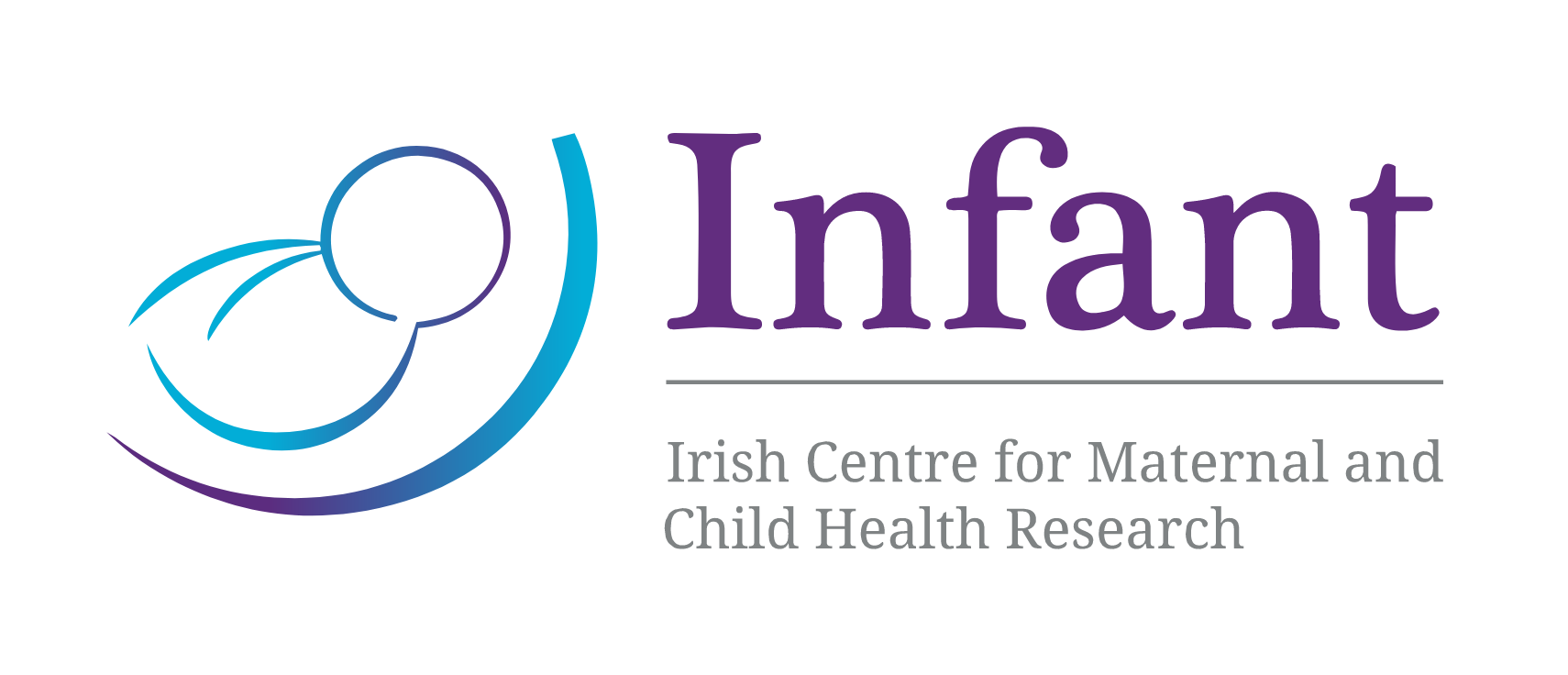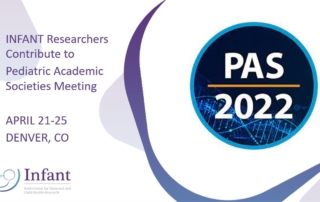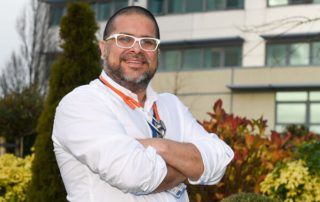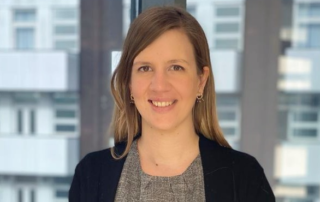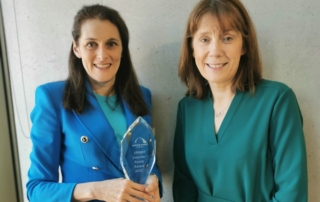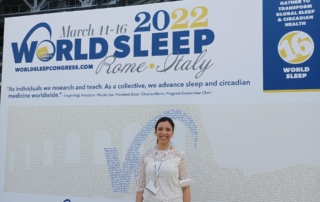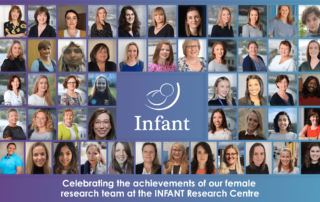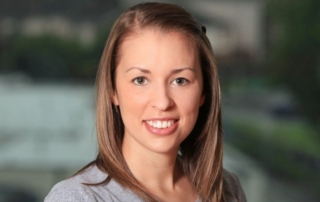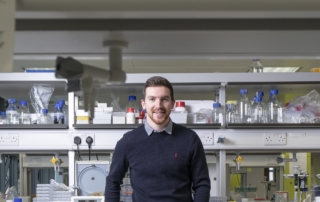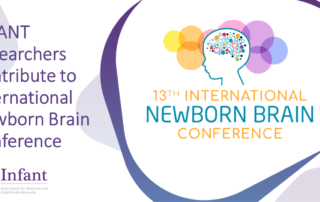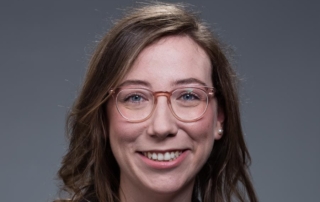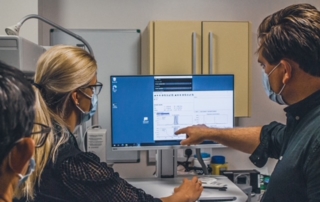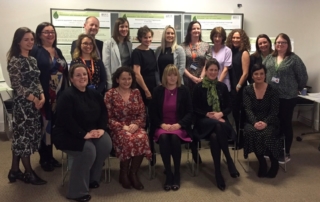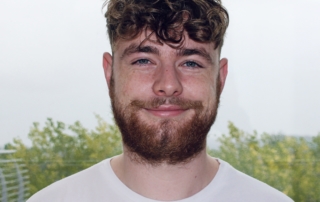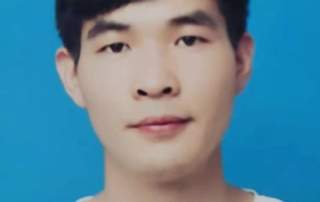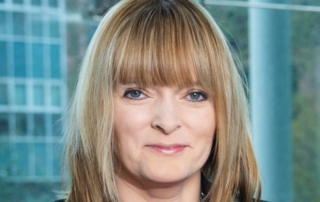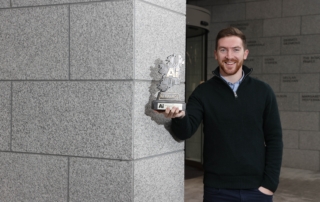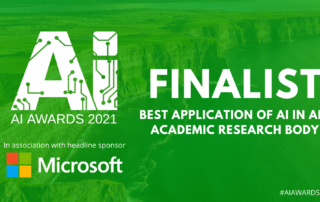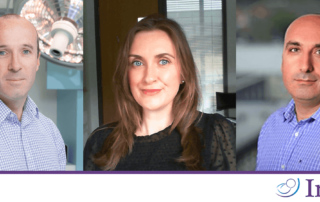INFANT Centre News
INFANT Researchers Contribution to PAS 2022 Meeting
INFANT is delighted to be involved in the PAS 2022 Meeting in Denver 21-25 April. Members of the INFANT team will join thousands of physicians, researchers, and Allied health professionals from 60 + specialty areas as they come together to share research, explore new collaboratives, and experience the best the paediatric research community has to offer. Professor Geraldine Boylan and Professor Deirdre Murray are giving invited talks while other members of the INFANT team will be presenting oral and poster presentations. See a list of INFANT speakers and schedule of presentations below: Geraldine B. Boylan, PhD Professor of Neonatal Physiology University College Cork Director of the Infant Research Centre, University College Cork Presentation(s): Making the Most of Neonatal Brain Monitoring Sunday, April 24, 2022 11:35 AM – 11:50 AM US MT Role of EEG and machine learning algorithms Sunday, April 24, 2022 1:25 PM – 1:35 PM US MT Deirdre M. Murray, MB BAO BcH FRCPI FPAEDPhD Chair of the Department of Paediatrics and Child Health University College Cork Presentation(s): Clinical importance of long term follow up Sunday, April 24, 2022 1:15 PM – 1:25 PM US MT Eugene Dempsey, FRCPI Horgan Chair in Neonatology University College Cork Poster(s): 463 - Early cerebral desaturation events in extremely preterm infants are associated with intraventricular haemorrhage in the first week of life Sunday, April 24, 2022 [...]
Dr Juan Trujillo’s Research Into Strategies That Help CMPA Patients Reintroduce Milk Into Their Diet
With the support of the National Dairy Council and Dairy Research Ireland, INFANT’s Dr Juan Trujillo, Senior Lecturer in UCC and Consultant paediatric allergist at Cork University Hospital, is the lead investigator on the COWS project, a study that aims to compare three different strategies that will help milk protein allergy (CMPA) patients reintroduce milk into their diet. Usually diagnosed before a child reaches their first birthday, CMPA is one of the major complaints in the allergy clinic and impacts the well-being of patients and their caregivers. Cow’s milk protein allergy is considered one of the major complaints in the allergic clinic. Usually diagnosed before a child reaches their first birthday, it increases the burden on the patient and their caregivers. The most common strategy employed in Ireland to treat CMPA is the Milk ladder, which incrementally reintroduces milk over time. However, in other parts of the world, strict avoidance of cow’s milk is practised, and only reintroduced several years later depending on laboratory allergy parameters. Alternative methods of treatment, including the administration of a limited amount of pasteurized milk in clinics, with subsequent doses administered at home, are employed in hospitals such as Miguel Servet in Zaragoza, a global leader in CMPA treatment. As such, Dr Trujillo’s research will examine the three different approaches used to treat CMPA in order to form a greater understanding [...]
PhD Profile: Tamara Escañuela Sánchez’s Study to Raise Awareness of and Reduce the Risk Factors Connected with Stillbirth
A graduate of the Universitat Autònoma de Barcelona, INFANT PhD candidate, Tamara Escañuela Sánchez came to University College Cork to study under Professor Keelin O’Donoghue and develop a behaviour change intervention model that will raise awareness of and reduce the risk factors associated with stillbirth in Ireland. Tamara’s multidisciplinary supervisory team is composed by Dr. Karen Matvienko-Sikar from the School of Public Health in UCC; Dr. Sarah Meaney, from the National Perinatal Epidemiology Centre; Professor Molly Byrne lead of the Health Behaviour Change Research Group, School of Psychology at NUI Galway and Professor Keelin O’Donoghue lead of the Pregnancy Loss Research Group at Cork University Maternity Hospital. Funded by Science Foundation Ireland, Tamara’s research, titled The Relevant Study, examines the risk factors connected with stillbirth and ill health in babies such as substance abuse, sleep position, weight management and engagement with antenatal care. Ultimately, Tamara hopes that her study might one day lead to the introduction of an initiative, similar to the Saving Babies' Lives Care Bundle introduced by the NHS in the UK, that targets the modifiable risk factors for stillbirth in Ireland. I have been looking at various studies that examine the different risk factors associated with still births. The factors that I’m focussing on are substance abuse, sleep position, weight management and engagement with antenatal care services. Changing behaviours associated with those [...]
Liltoda wins UCC Innovation Award for CogniTOT Application
Liltoda Ltd, the first academic spin out to emanate from the INFANT Research Centre at University College Cork, has been awarded a GatewayUCC Sprint Award by Professor John O’Halloran, President of UCC. Launched in August 2021, Liltoda aims to develop and market novel technology-based solutions to the cognitive assessment of young children. Its first product, the CogniTOT application, offers touch-screen based cognitive assessment for children aged 18-30 months. It was developed through six years of research in the INFANT Centre, funded by both the Health Research Board and Science Foundation Ireland. The CogniTOT app is non-verbal and so suitable to use in children with speech delay or for whom English is not their first language. Now in its sixth year, GatewayUCC Sprint Awards recognises the UCC researchers and entrepreneurs who establish spin-out start-up companies. The Sprint Programme has been developed to help spin-out start-up companies overcome challenges they may encounter when starting their businesses. As part of the programme, pre and early-stage start-ups work with successful business mentors who help to bring businesses from the idea stage through to the eventual commercialisation of the product or service.
Soraia Ventura Presents Her Research at World Sleep Congress
INFANT PhD researcher, Soraia Ventura, presented her research at the World Sleep Congress in Rome on March 14 and 15. The Congress consistently gathers the best minds in sleep medicine and research for multiple days of scientific sessions and networking. A truly global meeting, 77 countries were represented at World Sleep 2019, the last in-person iteration of the annual event. This year’s event saw experts gather in Rome to deliver over 300 hours of courses, keynotes, symposia and abstract presentations. Soraia's oral presentation, titled, Infant Sleep as a Marker of Neurodevelopment, demonstrated how EEG analysis may be useful for early identification of the risk of adverse neurodevelopmental outcomes, allowing early intervention. Her poster, titled, Effect of a standardized massage routine on sleep EEG in ex-term infants at 4 months of age: A Randomised Control Trial, concluded that routine parent-led massage during the first 4 months of life is associated with distinct changes in brain function that may suggest more advanced brain maturation. Working under the supervision of Professor Geraldine Boylan and Dr. Sean Mathieson, Soraia is conducting her research as part of the BabySMART project.
INFANT Seminar Series: Dr Mark O’Sullivan to Discuss Neonatal EEG Monitoring – Hardware, AI and Medical Device Design
Our next INFANT seminar will be this Friday, March 25th at 12pm, when Dr Mark O'Sullivan will present "Neonatal EEG monitoring - hardware, AI and medical device design". Dr O'Sullivan will present updates on the Neurobell Project, which aims to develop a portable neonatal EEG monitor with seizure detection, including methodologies for medical device design in a quality and regulatory compliant manner. Lastly, Dr O'Sullivan will present new research from the Delphi Project on the design of an artefact detection algorithm for neonatal EEG and its impact on automated HIE grading.
INFANT Seminar Series: Dr Dhanis Lad to Discuss the STOP AD Randomised Controlled Trial
Presentation title: Early initiation of short-term emollient use for the prevention of atopic dermatitis in high-risk infants – the STOP AD randomised controlled trial Atopic dermatitis (AD), also known as eczema, is a chronic inflammatory skin condition, characterized by dry, red and itchy skin. AD usually begins in infancy and affects up to one fifth of children. Evidence of its pathogenesis implicates impaired skin barrier function as a significant pathomechanism, along with cutaneous immune dysregulation and microbial disturbances. Emollients are moisturising treatments applied directly to the skin to soothe and hydrate it. Daily emollient use is a cornerstone of AD management. Recently, the spotlight has been on the potential role of emollients in infancy in preventing AD. Short-term Topical Application to Prevent Atopic Dermatitis (STOP AD) was a single-centre, two-armed randomized control trial that postnatally recruited newborn infants at high-risk of AD. This study aimed to investigate if daily emollient use from birth to 2 months can reduce the incidence of AD in high-risk infants. Recruitment took place between April 2019 and November 2020 in Cork University Maternity Hospital (CUMH). Infants were randomised within 4 days of birth to either twice-daily emollient application for the first 8 weeks of life (intervention) or to standard routine skin care advice (control group). The primary outcome was cumulative incidence of AD at 12 months. Secondary outcomes included AD incidence [...]
IWD 2022: Celebrating The Achievements of Our Female Research Team
On this International Women’s Day, we are delighted to celebrate the achievements of UCC female researchers based at the INFANT Research Centre, by demonstrating leadership in research that is transforming the future of maternal and child healthcare. Led by Director Professor Geraldine Boylan, INFANT is answering the international need for research and innovation to improve health outcomes across the continuum of pregnancy, infancy and childhood. Here are just examples of their work: INFANT spin out company, Liltoda, led by Professor Deirdre Murray in collaboration with Hello Games, a global gaming company, is harnessing the power of innovative gaming technology to assess cognitive function in young children. This technology was developed by the team at INFANT and is now being rolled out across the world. Dr. Jane English is leading a transformative study that aims to identify biomarkers in the blood (e.g. proteins or metabolites) that predict the onset of severe childhood autism. Early prediction will help support early intervention, improvements in health outcomes and enhance the quality of life of children with severe autism, and their families. Professor Geraldine Boylan has led the world’s first clinical trial of an automated seizure detection device for newborn infants, a device which was developed by researchers at INFANT in UCC. This technology was recently commercialised and launched in Ireland and Japan by industry partner Nihon Kohden, a Tokyo [...]
Dr Elaine McCarthy’s Project to Screen for Iron Deficiency in Pregnant Women and Infants
INFANT’s Dr Elaine McCarthy is the lead investigator on the IDEA project, a study that aims to develop two screening tools to identify iron deficiency among pregnant women and preterm infants. Funded by the Health Research Board (HRB), it is anticipated that the project will lead to the creation of screening tools that can be integrated into clinical practice and allow for the early detection of iron deficiency. Titled Iron Deficiency Assessment for protection of the newborn brain, the project has the potential to identify a condition that is estimated to affect 2 billion people worldwide, according to Dr McCarthy. In Europe, one in three pregnant women are iron deficient, with even higher rates of up to 85% iron deficiency seen in some countries. Similarly, high rates of deficiency are widely reported in infants and young children, with evidence suggesting as many as one in two young children are iron depleted or deficient. If left untreated, iron deficiency will progress into iron deficiency anaemia, which can result in adverse pregnancy outcomes such as preterm birth or the birth of a low-birth-weight infant. We want to protect women and their children from iron deficiency by creating a tool that will identify the mothers and infants who are at the greatest risk so that they can receive early treatment. By taking such a preventive approach, Dr McCarthy, [...]
INFANT Designed Brain Injury Detection Device Secures Enterprise Ireland funding
A research team led by University College Cork’s (UCC) Dr Mark O’Sullivan in the INFANT Research Centre has been awarded funding by Enterprise Ireland to commercialise a medical device that could transform how clinicians are able to detect newborn brain injuries. Presently, brain injuries in newborns account for 23% of all infant deaths and over one million cases of permanent disability each year. Seizures are often the most common diagnostic indication of brain injury. However, accurate diagnosis requires complex equipment and expertise which is not readily available. The pocket-sized device, which is being developed by the Neurobell team at UCC’s INFANT Research Centre, will allow clinicians to rapidly diagnose potential brain injuries in newborns without requiring the specialised medical expertise needed to configure and manage complex EEG machines. Dr O’Sullivan, a lead investigator with INFANT, believes that the novel device could potentially be deployed across all hospital settings, ensuring that clinicians could make rapid decisions using its AI-based decision support. Although EEG is the gold standard for neurological monitoring, they are large complex machines that require specialised personnel to configure the equipment and interpret the hours of resulting EEG information. This often restricts the use of EEG monitoring to tertiary hospitals, and even in such locations, the expertise is not readily available for EEG to be used routinely without significant delays. We are building a portable [...]
INFANT Researchers Contribute to International Newborn Brain Conference
Professor Geraldine Boylan and Professor Deirdre Murray, alongside Ph.D candidates Minoo Ashoori and Dr Aisling Garvey, presented INFANT’s cutting edge research in areas such as neonatal sleep and neonatal encephalopathy at the International Newborn Brain Conference. The annual International Newborn Brain Conference sees a host of acclaimed researchers from leading North American and European institutions explore new ways of understanding, monitoring, protecting and treating the newborn brain. Now in its 13th year, the conference provides continuing medical education to multidisciplinary professionals working to improve the neurological and developmental health outcomes of premature and high-risk newborns. The prestigious conference took place between February 9-12 and saw both Professor Boylan and Professor Murray included among the list of globally renowned invited speakers. Both Professor Boylan and Professor Murray were also members of the organising committee for the conference, they moderated panels and presentations, took part in debates and presented papers at what was a hugely engaging and incredibly successful conference. Learn more about the International Newborn Brain Conference.
INFANT Seminar Series: Dr Kirsten Dowling to Discuss Predictive Biomarkers for Autism Spectrum Disorder: A Metabolomics Profiling Study in the Cork BASELINE Birth Cohort
Autism Spectrum Disorder (ASD) is a neurological, developmental disorder that affects communication and behaviour. Currently, there is a lack of understanding about the aetiology of ASD and children are not diagnosed reliably until they are at least 3 to 4 years of age. Henceforth, there is an urgent need for the identification of diagnostic biomarkers for the prediction of ASD. Metabolomic profiling was undertaken on cord blood plasma from ASD cases vs gender matched controls from the Cork BASELINE Birth Cohort using Liquid chromatography-tandem mass spectrometry. Clinical data (maternal and child BMI, birth weight, gestational age, health and lifestyle etc.) were combined with metabolite peaks to explore machine learning (ML) algorithms: t-test, partial least squares-determinant analysis (PLS-DA) and random forest (RF). We profiled 2612 compounds and 18 clinical variables to identify the top predictive metabolite and clinical features for the development of ASD. RF feature selection resulted in the highest performing 20 metabolite subset, and pathway analysis revealed significant alterations in 5 metabolic pathways. Dr Kirsten Dowling will deliver her presentation on Friday, February 11 at 12 pm.
INFANT PhD Profile: Dr Emily O’Connor’s Work to Standardise The Way Reviews of Perinatal Deaths Occur
Dr Emily O’Connor is pursuing a PhD in the area of perinatal medicine with INFANT and NPEC at UCC. Her background includes previous work as a Specialist Registrar in obstetrics and gynaecology with the Royal College of Physicians in Ireland (RCPI). Emily is extremely passionate about improving our maternity and perinatal services as well as improving the experience of parents who use those services. Emily’s planned thesis is titled: Structured Evaluation and Implementation of a National Perinatal Mortality Review Tool for Ireland. Her research is funded by Féileacáin, the Stillbirth and Neonatal Death Association of Ireland. Perinatal deaths encompass babies who die before they are born (stillbirth), during labour or delivery (intrapartum death) or after birth (neonatal death). The Irish perinatal mortality rate has remained stable over the last ten years but has not decreased over this period. Emily’s work aims to standardise the way reviews of perinatal deaths occur by developing and implementing a national perinatal mortality audit tool for all perinatal deaths occurring in every maternity unit across Ireland. A major focus of this work is the involvement of bereaved parents in the review process. The aim of this research is to offer a more inclusive, transparent process for parents who have experienced the loss of their baby. Emily is conducting this research with the Pregnancy Loss Research Group based at INFANT and the NPEC. Her supervisors are Professor Keelin [...]
INFANT Researchers Assess Novel Optical System to Monitor Lung Function in Babies
Researchers at University College Cork’s INFANT Centre recently commenced a study of a new non-invasive optical device that may provide real-time information on the lung function of newborn babies. By using light-emitting technology, this novel system incorporates sensors placed on a baby’s chest to detect oxygen levels in different regions of the baby’s lungs. ‘This system has the potential to significantly alter the way we monitor babies in the neonatal intensive care unit, especially preterm infants and term babies on mechanical ventilation', according to Professor Eugene Dempsey, the Horgan Chair in Neonatology at UCC, Clinical Lead for Neonatal Research and Principal Investigator with the INFANT Research Centre. ‘Not only can we potentially monitor them more closely in real-time, but we can reduce X-ray exposure and limit blood tests being performed’ he added. One month old, Elodie Fitton, was the first baby to take part in the study after her parents, Cora Shorten and Kieran Fitton, were approached to take part in the project called NIOMI (Non-Invasive lung Oxygen Monitoring of Infants). ‘We agreed to have Elodie take part as the first baby in this study. We believe as parents this study could help many of those sick and vulnerable babies in a situation where they need more care and monitoring’. ‘As this was a non-invasive study it made sense for Elodie and us to be [...]
Pregnancy Loss Research Group Secures IRC funding to Enhance the Translation of Pregnancy Loss Research into Policy and Practice
Professor Keelin O’Donoghue, Lead of the Pregnancy Loss Research Group, together with the Irish Hospice Foundation as civic society partner, has been awarded an Irish Research Council New Foundations Award 2021 to enhance the translation of pregnancy loss research into policy and practice through a project titled PLATFORM: Pregnancy Loss knowledge trAnslaTion FOR iMpact. The project will bring researchers, key civil society partners and other knowledge users – including parent advocates – together to identify barriers and facilitators to knowledge translation, and develop activities and outputs in an effort to address the decades-long lack of progress in implementing change at policy and practice levels. PLATFORM will contribute to enhancing Irish public and policymaker awareness of pregnancy loss, provision of more effective services/supports within the health care system, community sector, and beyond, and influencing policymaking and healthcare funding. The project was developed in part following input from parent advocates on public and patient involvement group for an ongoing research project (RE:CURRENT); they voiced the need for parents to hear about pregnancy loss research that is being undertaken, as often they feel that it is a neglected area. Announcing the New Foundations 2021 recipients, Director of the Irish Research Council, Peter Brown, said: “In addition to the 55 projects announced today that will collaborate with civic society partners, we are also delighted to renew our ongoing partnerships [...]
INFANT Seminar Series: Dr Colin Hawkes to Discuss His Research Into Diabetes
Our INFANT seminars will resume on Friday, January 28th at 12pm. We are delighted to welcome Dr Colin Hawkes, paediatric endocrinologist as our first speaker of the new year. Dr. Hawkes will present Clinical & Academic Synergies in Type 1 Diabetes. He will discuss a selection of his past and ongoing diabetes research at the Children’s Hospital of Philadelphia and Cork University Hospital, as well as future opportunities. We hope you can all join us for what we are sure will be a fantastic talk!
PhD Profile: Cathal Dorgan’s Fascinating Project That Connects Maths and Neuroscience
An emerging expert in the field of non-linear dynamics, Cathal Dorgan joined INFANT as a PhD researcher in October, bringing with him cutting edge knowledge and ideas. An ambitious researcher, Cathal aspired to enrol in a postgraduate programme that offered him the opportunity to delve deeper into areas that specifically interested him after completing a Bachelor of Science at University College Cork. As part of my final year project, I focussed on nonlinear dynamics. It was a field that I became increasingly interested in as I progressed through my undergraduate degree. So, when I saw how nonlinear dynamics were at the core of the project INFANT were recruiting PhD students for, I jumped at the chance to apply for it. Thankfully, I was successful in my application and received the opportunity to begin working at INFANT in October. Studying under the supervision of Professor Sebastian Wieczorek, Cathal will be working on an SFI Frontiers for the Future project that is developing decision support tools for newborn brain protection at INFANT. Specifically, Cathal will be applying mathematical techniques, models and theories so that the project team can accurately depict the behaviour of the neonatal brain. Using various mathematical techniques like tipping point theory, transitions and bifurcation theory, we hope to model instabilities in the neonatal brain. At the moment, I’m learning more about the mathematical theories [...]
PhD Profile: Georgios Papanikolaou Explains How He’s leveraging Mathematical Systems to Identify Seizures in Infants
A PhD researcher with an eye for identifying the synergies that connect industry and academia, Georgios Papanikolaou comes to INFANT to work on an SFI Frontiers for the Future project to develop new AI models to predict seizures in the neonatal brain. Working under the supervision of Professor Geraldine Boylan, Professor Liam Marnane and Professor Sebastian Wieczorek, Georgios is looking to combine mathematical systems, such as machine learning, system and control theory and tipping point theory, with real seizure data to develop models to foresee and identify the onset of seizures and develop strategies to reduce them in premature babies. We already have programmes that can detect seizures, but what we want to do is to build a model that can predict them. We want to identify specific readings from EEG and ECG signals so that we’re able to recognise the hallmarks of a seizure so that we can create an algorithm that can accurately identify and predict them. Our first step is to precisely map a seizure and create a model that can identify one, then we’ll start working backwards to try and identify key indicators. If we can do that, then we can start building a machine learning model. Georgios will lean on his experience of applying mathematical theory across diverse industries during the project. After graduating from Aristotle University of Thessaloniki with [...]
INFANT Seminar Series: Dr Andrea Bowe and Dr Roberto Chioma To Present Their Research Plans
The final INFANT seminar series before Christmas will take place this Friday at 12 noon. Two of our new research fellows will present their research plans. Dr. Andrea Bowe, an ICAT fellow will be discussing her PhD 'Predicting Cognitive Outcomes In Childhood - Exploring the Role for Machine Learning'. Dr. Roberto Chioma, a visiting Italian clinical fellow, will be discussing the early echocardiographic assessment of transitional hemodynamics. We hope as many of you can attend and welcome our new INFANT members.
PhD Profile: Shuwen Yu Describes How Automation Can Help Predict Seizures in the Neonatal Brain
A graduate of the MEngSc in Electrical and Electronic Engineering at University College Cork, Shuwen Yu joins the INFANT Research Centre to begin working on a PhD programme under the supervision of Professor Geraldine Boylan, Professor Liam Marnane and Dr Gordon Lightbody. A stellar student at the North China Institute of Aerospace Engineering, where Shuwen received numerous awards and scholarships, including the China Space Foundation Scholarship, a National Scholarship of China and a China Aerospace Science and Technology Corporation Scholarship on his way to graduating with a Bachelor of Engineering in 2019. One year later, Shuwen came to study at UCC, where he developed advanced skills in the field of automation and honed his knowledge of robotics. In 2020 I came to Cork to study under Professor Liam Marnane and Dr Gordon Lightbody. It was at UCC where I really learned a lot about Python and started to think about doing a PhD. When I learned about the opportunity to study machine learning under Professor Marnane and Dr Lightbody at INFANT, my mind was made up. Shuwen enrolled in the PhD programme in October and has begun working on the project to develop machine learning tools for clinical support in the protection of the neonatal brain. The four-year project is part of a wider and more ambitious endeavour being undertaken by Professor Marnane and Dr [...]
INFANT PI and Pregnancy Loss Research Group Lead, Professor Keelin O’Donoghue, wins Irish Research Council Research Ally Prize
Professor Keelin O’Donoghue, has been awarded a Research Ally Prize as part of the Irish Research Council Researcher of the Year 2021 awards for the positive impact that she has made as a mentor. Announcing this year’s winners, Director of the Irish Research Council, Peter Brown, said: “I would like to congratulate the awardees on their awards. The standard of nominations this year was extremely high, and each of the winners should be immensely proud of their achievements. It is great to see this year’s winners representing a diverse range of research interests, which reflects the creativity and dynamism of the research community here in Ireland.” Professor O’ Donoghue is a Consultant Obstetrician and Maternal-Fetal Medicine Sub-Specialist at Cork University Maternity Hospital and is actively engaged in impactful research, teaching and clinical practice. She leads the multi-disciplinary Pregnancy Loss Research Group, which comprises over 30 members, at all career stages. She has extensive supervisory/mentorship experience, with numerous researchers having completed/ongoing studies with her support, under a variety of programmes: PhD, Masters by research, MSc Public Health, MD, MSc Obstetrics & Gynaecology, Diploma Obstetrics & Gynaecology, and postdoctoral. Professor O’Donoghue is one of ten 10 UCC winners of the Irish Research Council Research Ally Prizes. The Research Ally Prizes celebrate the role of supervisors, mentors, and research officers in supporting and sustaining the Irish research community, and how [...]
INFANT PhD Researcher, Soraia Ventura, to Speak at Escola Superior de Saúde – Porto
INFANT PhD researcher, Soraia Ventura, will speak at an event aimed at students of clinical physiology and neurophysiology at the Escola Superior de Saúde in Porto, on Thursday 2 December. Soraia will be speaking about her academic career to date, what it means to be a researcher and the INFANT Research Centre. The event is the first of a series of seminars organised by Professor Diana Tavares, coordinator of the undergraduate degree in Clinical Physiology and coordinator of the Neurophysiology department at the School of Health at the Escola Superior de Saúde. The overall objective of the series is to demystify and open perspectives on research to health students. The event will also see Soraia return to her alma mater, where she completed a B.Sc (Hons) Neurophysiology in 2011. Soraia joined INFANT in 2017 after working in the Clinical Neurophysiology Department at Cork University Hospital as a Clinical Physiologist in Neurophysiology. Her PhD project, titled Electroencephalographic Study of Sleep Architecture in Infants at Four Months, aims to understand infant Neurodevelopment through sleep markers and falls within the scope of INFANT’s BabySMART study. Other speakers at the event include: Dr. Carolina Reis, researcher at University of Oxford. Catarina Castro, PhD candidate at Faculty of Medicine at the University of Porto.
INFANT Research Centre wins “Best application of AI in an Academic Research Body” in the National AI Awards 2021
The INFANT Research Centre at University College Cork has won the prestigious “Best application of AI in an Academic Research Body” award at this year’s National AI Awards. The AI Awards, hosted by AI Ireland and main sponsor Microsoft, are devoted to promoting AI in Ireland, with this year’s “Best application of AI in an Academic Research Body” sponsored by the RDI Hub. The INFANT Research Centre secured a nomination based on its cutting-edge research and pioneering breakthroughs in using AI technology to detect neurological problems in newborn infants. Recent advances on the Neurobell project, led by Dr. Mark O’Sullivan, are focused on bringing this disruptive technology toward everyday clinical use. The project is developing an end‑to-end diagnostics solution, which integrates portable and wireless monitoring with on-board AI, to ensure that it can be rolled out across multiple hospital settings. EEG monitoring is the gold standard for neurological monitoring, however, it requires specialised expertise to both set up the monitoring systems and to interpret the EEG traces. According to Dr. O’Sullivan, “by developing a portable monitor with on-board decision support, we’re aiming to increase the number of hospitals capable of providing EEG monitoring for high-risk newborns. "The cot side technology that we’re building is designed to allow for the neurological monitoring of newborns, across all hospital settings, helping those in need to be diagnosed and [...]
INFANT Nominated as Finalist at AI Awards
The INFANT Research Centre at University College Cork has been nominated as a finalist in this year’s AI Awards 2021 for “Best application of AI in an Academic Research Body”. INFANT’s nomination is based on the work of researchers who are developing AI-based technologies for automated detection of brain injuries in newborns. Newborn brain injuries account 23% of all infant deaths and over 1 million cases of permanent disability each year. Timely and accurate diagnosis of these injuries are essential to provide treatment and help improve patient outcomes. EEG monitoring is the gold standard for neurological monitoring, however it requires specialised expertise to both set up the monitoring systems and to interpret the EEG traces. The team at INFANT have previously developed machine learning algorithms for neonatal EEG interpretation, achieving state-of-the-art performance. Recent advances on the Neurobell project, led by Dr. Mark O’Sullivan, are focused on bringing this disruptive technology toward everyday clinical use. The project is developing an end‑to-end diagnostics solution, which integrates portable and wireless monitoring with on-board AI. EEG monitoring is currently limited to tertiary-care hospitals. By developing a portable monitor with on‑board decision support, the team aim to widen the demographic of hospitals capable of providing EEG monitoring for high-risk newborns. The impact of this means that neurological monitoring of newborns can be performed accurately and routinely at the cot side, across all [...]
INFANT Welcomes Three New Principal Investigators
Three outstanding UCC researchers have joined the INFANT Principal Investigator team. Dr Jane English, Lecturer in Anatomy and Neuroscience, brings invaluable expertise to INFANT in the application of proteomics, metabolomics and bioinformatics to improve our understanding of the molecular pathways implicated in maternal and child health and disease. Dr Ali Khashan, Senior Lecturer in Epidemiology at the School of Public Health, brings 15 years research experience in Perinatal and Psychiatric Epidemiology and considerable expertise in interrogation of complex and large population-based datasets and advanced statistical methods. Dr Fergus McCarthy, Consultant Obstetrician and Gynaecologist at Cork University Maternity Hospital and Senior Lecturer in Obstetrics and Gynaecology brings his expertise to further strengthen INFANT’s research in fetal and maternal health, especially in improving pregnancy outcomes and women’s experiences during pregnancy. “I am absolutely delighted to welcome our three new Principal Investigators to INFANT. They represent excellent additions to, and a significant expansion of, our Principal Investigator team and further strengthen the centre’s research leadership” Prof Geraldine Boylan, Director INFANT
